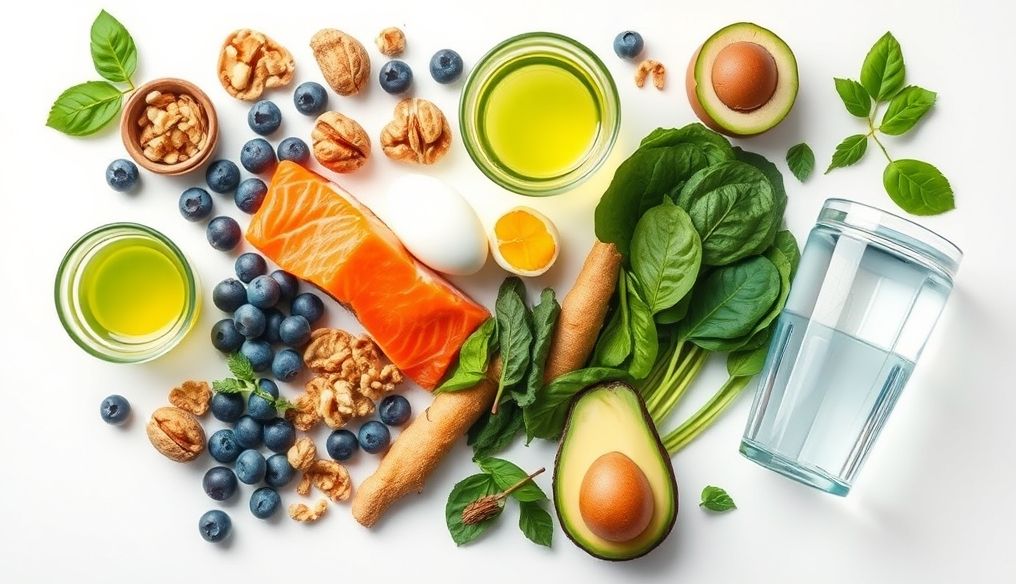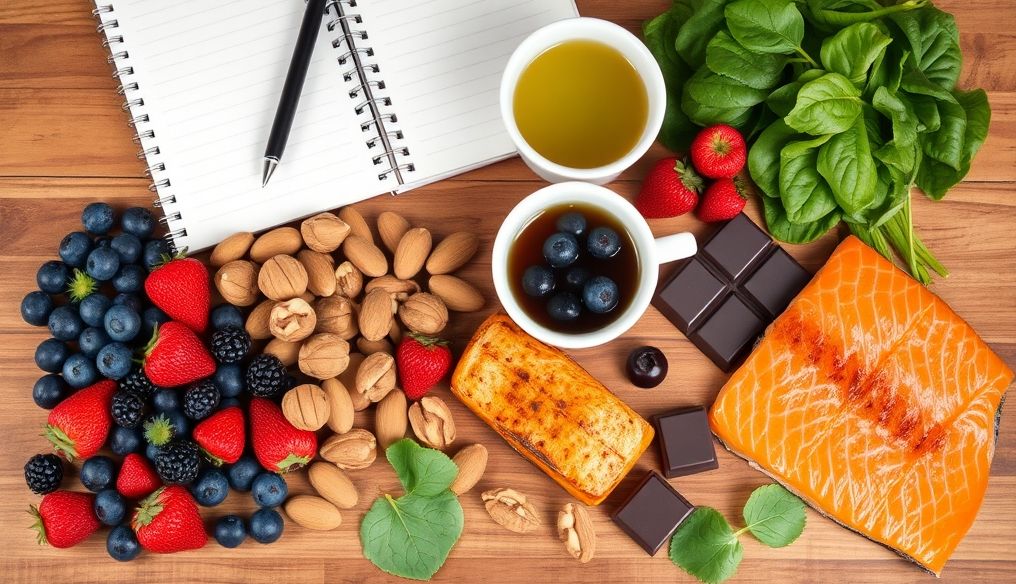What Foods Boost Focus and Cognitive Function?
In our fast-paced and demanding world, focus and sharp cognitive function are more important than ever. While some turn to supplements and medications, there's a natural and effective way to boost your mental abilities: through your diet. Certain foods contain powerful nutrients that support brain health, improve focus, memory, and overall cognitive performance.
Chapter 1: The Nutritional Basics for Brain Health
Before diving into specific foods, it's important to understand the nutritional basics that support brain health:
- Healthy Fats: The brain is made up of about 60% fat, so consuming healthy fats is essential for its function. Healthy fats include omega-3 fatty acids found in fatty fish, flaxseeds, and walnuts, as well as monounsaturated fats found in olive oil and avocados.
- Antioxidants: Antioxidants protect the brain from damage caused by free radicals, unstable molecules that can contribute to cognitive decline. Antioxidants are abundant in colorful fruits and vegetables.
- Vitamins and Minerals: Certain vitamins and minerals, such as B vitamins, magnesium, and zinc, play a crucial role in brain function.
- Hydration: Dehydration can negatively impact focus and memory. Make sure to drink enough water throughout the day.
Chapter 2: Fatty Fish: Fueling the Brain with Omega-3s
Fatty fish like salmon, sardines, and mackerel are rich in omega-3 fatty acids, especially eicosapentaenoic acid (EPA) and docosahexaenoic acid (DHA). These fatty acids are essential for brain health and can improve memory, mood, and focus.
Study: A study published in the journal "Alzheimer's & Dementia" found that people who ate fatty fish regularly had a lower risk of developing Alzheimer's disease.
Chapter 3: Berries: Antioxidant Powerhouses for Memory
Berries, such as blueberries, strawberries, and blackberries, are packed with antioxidants, especially flavonoid compounds. These compounds help protect the brain from damage and improve memory and learning.
Tip: Add berries to your breakfast, yogurt, or smoothies for a delicious cognitive boost.
Chapter 4: Nuts and Seeds: A Brain-Healthy Snack
Nuts and seeds are a good source of healthy fats, protein, fiber, vitamins, and minerals. Walnuts are particularly rich in omega-3 fatty acids, while pumpkin seeds contain zinc, which is essential for memory and thinking.
Caution: Consume nuts and seeds in moderation, as they are calorie-dense.
Chapter 5: Eggs: A Choline Source for Memory Enhancement
Eggs are an excellent source of choline, an essential nutrient for brain health. Choline plays a role in memory, mood, and other cognitive functions.
Fact: The yolk is the part of the egg that contains the most choline.
Chapter 6: Green Tea: Boosting Focus with Antioxidants and Caffeine
Green tea contains powerful antioxidants, including EGCG, which can protect the brain from damage. It also contains a small amount of caffeine, which can improve focus and alertness.
Tip: Replace coffee with green tea for a gentler boost of energy and focus.
Chapter 7: Turmeric: An Anti-Inflammatory Brain Protector
Turmeric is a golden-yellow spice that contains curcumin, a compound with potent anti-inflammatory and antioxidant properties. Studies suggest that curcumin may improve memory and mood and protect against Alzheimer's disease.
Tip: Add turmeric to curries, soups, or smoothies for its health benefits.
Chapter 8: Green Leafy Vegetables: Vitamins and Minerals for Brain Health
Green leafy vegetables, such as spinach, kale, and arugula, are rich in vitamins and minerals, including vitamin K, folate, and lutein. These nutrients are essential for brain health and may improve memory and cognitive function.
Fact: Try to eat at least one serving of green leafy vegetables every day.
Chapter 9: Avocados: Healthy Fats for Brain Blood Flow
Avocados are a fruit rich in monounsaturated fats, which can help improve blood flow to the brain. They are also a good source of vitamin K and folate, which are essential for brain health.
Tip: Add avocado to salads, sandwiches, or use it as a substitute for butter on toast.
Chapter 10: Water: Hydration is Key for Focus
Dehydration can negatively impact focus, memory, and mood. Make sure to drink enough water throughout the day.
Tip: Keep a water bottle with you and refill it regularly. Aim to drink at least 8 glasses of water per day.
Conclusion
By incorporating these brain-boosting foods into your diet, you can improve your focus, memory, and overall cognitive function. Remember that a healthy diet is just one part of the equation. Make sure to get enough sleep, exercise regularly, and manage stress for the best results.




